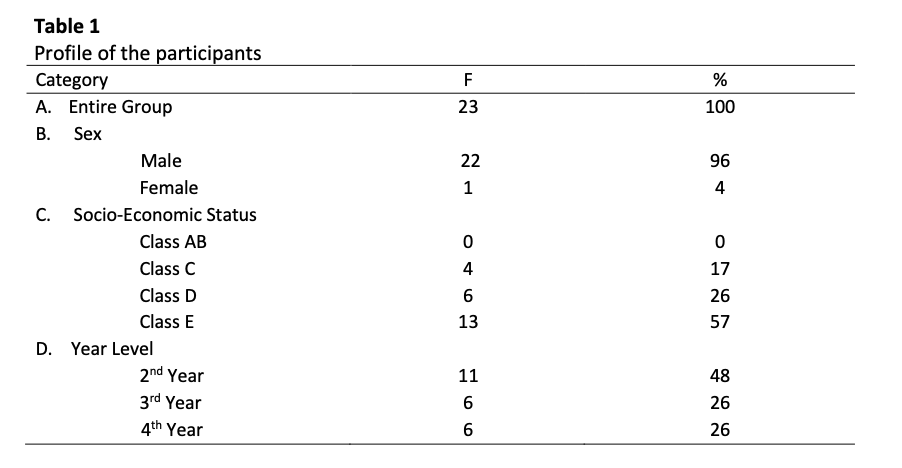The Relationship between Food Intake and Aggressive Behavior: A Correlational Study
Keywords:
Food intake, aggression, aggressive behaviorAbstract
The basic presumption is that unfulfilled physiological needs prompt aggressive behavior, and thus, a correlational study was conducted to determine the relationship between food intake and aggression, utilizing a survey questionnaire among nutrition and dietetics students. In this, it is interesting to navigate when the amount of food has a relationship with aggression. In relation to the study, it revealed that the respondents mainly eat rice, followed by bread, chicken, bananas, and fish. The common aggressive behaviors are ignoring, eye-rolling, gossiping, jealousy, and name-calling. Added, the respondents, in relation to their academic program, possess knowledge about food intake and aggression, which has been studied in their subjects. They enjoyed eating rice, a staple food eaten and habitually ignored, and the most aggressive behavior exposed. They manifest similar aggressive behavior, despite the fact that food intake and daily calorie intake were normal. Overall, students' daily food intake was classified as "normal" across different sexes, socio-economic statuses, and year levels. Notably, there were no significant differences in food intake or aggressive behavior when categorized by these demographics. Furthermore, the study found a low correlation between food intake and aggressive behavior among the students. In conclusion, basic physiological needs are generally met among the nutrition and dietetics students; the low correlation with aggressive behavior suggests that other factors may influence aggression, recommending further research on the aspects of food and aggression.









